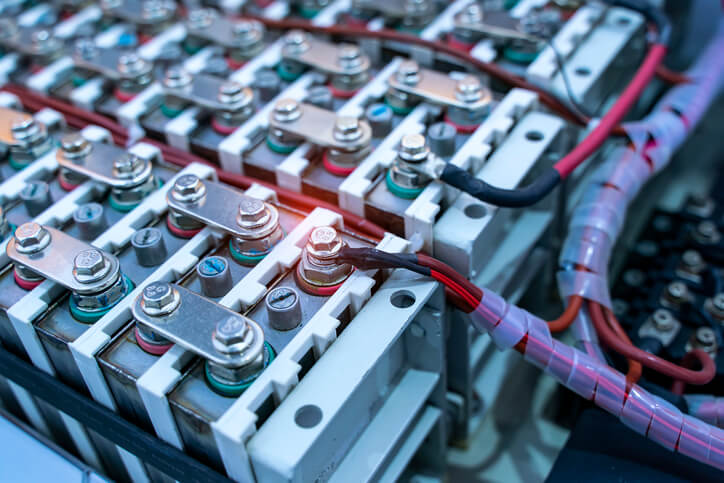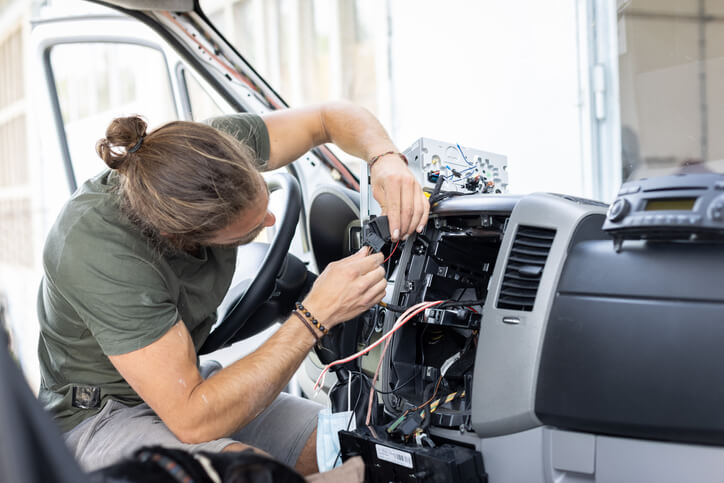Considering Hybrid and Electrical Mechanic Training? See Why Prices Are Going Down
The automotive industry is witnessing a monumental shift towards sustainability, with electric vehicles (EVs) at the forefront of this transformation. As interest in EVs continues to surge, one factor that has significantly contributed to their increased accessibility is the decreasing cost of ownership.
This trend impacts consumers and presents a burgeoning opportunity for those considering a career in hybrid and electric vehicle mechanics. Here’s a closer look at why EV prices are dropping and what it means for aspiring mechanics in this field.
Technological Advancements and Economies of Scale Reduce Costs
One of the primary drivers behind the reduction in EV prices is technological advancements. Battery technology, the most expensive component of electric vehicles, has seen significant improvements. As you’ll discover in automotive school, Lithium-ion batteries, which power most electric cars, have become more efficient and cheaper to produce. As research continues and breakthroughs occur, these costs will decline further.
Beyond this, as more automotive manufacturers commit to electrifying their fleets, the production volume of EVs has increased, leading to economies of scale. This means the cost per unit of manufacturing EVs decreases as production volume rises, allowing manufacturers to reduce the retail price of electric vehicles.

Government Incentives and Policies Increase Accessibility
Governments worldwide are offering various incentives to manufacturers and consumers to accelerate the adoption of electric vehicles. These incentives range from tax rebates and grants for EV purchasers to subsidies for EV manufacturers. Additionally, stringent environmental regulations push automakers to invest in electric technology, further driving down costs through compliance and innovation.
In Canada, the push towards a greener future is particularly evident, with the government implementing a range of incentives designed to accelerate the adoption of electric vehicles (EVs). Canadian buyers can benefit from substantial federal rebates, which, when combined with provincial incentives available in regions like Quebec and British Columbia, can significantly lower the purchase price of EVs.
These financial incentives include tax breaks, direct rebates on purchasing or leasing new electric vehicles, and subsidies for installing home charging stations. In addition, Canada’s investment in EV infrastructure and support for domestic production of electric vehicles and components signal a solid commitment to the electric vehicle industry. This comprehensive approach makes EVs more accessible to consumers while fostering a favorable environment for innovation and investment. It also underlines Canada’s leadership role in the global transition to sustainable transportation.
Increasing Industry Competition and Possibilities
The electric vehicle market is becoming increasingly competitive, with traditional automotive giants and new entrants vying for market share. This competition not only spurs innovation but also leads to price wars, which ultimately benefit the consumer. Prices are expected to continue their downward trajectory as companies strive to offer more affordable options to capture a broader audience.

Implications for Hybrid and Electrical Mechanic Training Students
The declining cost of electric vehicles is a positive sign for those considering a career in hybrid and electrical mechanics. The decreasing cost of EVs indicates a larger trend towards electrification in transportation, signaling a significant shift in the skills required by automotive technicians.
As EVs become more accessible, the demand for skilled technicians to maintain and repair these vehicles will increase, making now an opportune time to specialize in this forward-looking area. Hybrid and electrical mechanic training can offer several advantages:
- Job Security: As the automotive industry evolves, mechanics with specialized training in EVs will be in high demand, ensuring job security.
- Higher Earning Potential: Specialized skills in a burgeoning field often command higher wages due to the demand for qualified professionals.
- Contribution to Sustainability: Mechanics trained in EV technology play a crucial role in transitioning towards more sustainable transportation, contributing to environmental conservation.
Do you want to become a mechanic?
Contact ATC Surrey for more information.


